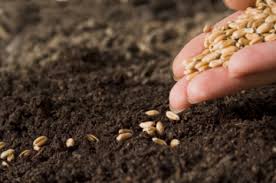
Breaking News
 China Will Close the Semiconductor Gap After EUV Lithography Breakthrough
China Will Close the Semiconductor Gap After EUV Lithography Breakthrough
 The Five Big Lies of Vaccinology
The Five Big Lies of Vaccinology
 Large global study analyzing data from 192 countries has sparked intense debate by suggesting...
Large global study analyzing data from 192 countries has sparked intense debate by suggesting...
Top Tech News
 EngineAI T800: Born to Disrupt! #EngineAI #robotics #newtechnology #newproduct
EngineAI T800: Born to Disrupt! #EngineAI #robotics #newtechnology #newproduct
 This Silicon Anode Breakthrough Could Mark A Turning Point For EV Batteries [Update]
This Silicon Anode Breakthrough Could Mark A Turning Point For EV Batteries [Update]
 Travel gadget promises to dry and iron your clothes – totally hands-free
Travel gadget promises to dry and iron your clothes – totally hands-free
 Perfect Aircrete, Kitchen Ingredients.
Perfect Aircrete, Kitchen Ingredients.
 Futuristic pixel-raising display lets you feel what's onscreen
Futuristic pixel-raising display lets you feel what's onscreen
 Cutting-Edge Facility Generates Pure Water and Hydrogen Fuel from Seawater for Mere Pennies
Cutting-Edge Facility Generates Pure Water and Hydrogen Fuel from Seawater for Mere Pennies
 This tiny dev board is packed with features for ambitious makers
This tiny dev board is packed with features for ambitious makers
 Scientists Discover Gel to Regrow Tooth Enamel
Scientists Discover Gel to Regrow Tooth Enamel
 Vitamin C and Dandelion Root Killing Cancer Cells -- as Former CDC Director Calls for COVID-19...
Vitamin C and Dandelion Root Killing Cancer Cells -- as Former CDC Director Calls for COVID-19...
 Galactic Brain: US firm plans space-based data centers, power grid to challenge China
Galactic Brain: US firm plans space-based data centers, power grid to challenge China
Organic seed market explodes, sales predicted to hit $5.4B by 2024

(Natural News) It wasn't too long ago that organic food was considered to be a luxury. Its high prices made it something that only the most devout health nuts and those with deeper pockets were willing to shell out for. Now, however, organic food is quickly becoming a necessity for those who want a long and healthy life. The price difference between organic and non-organic is not as pronounced as it once was as the supply increases, and more and more people are finding the higher price tag a very small price to pay to avoid eating chemical pesticide-laden food.
A look at the current trends in the seed market illustrates this growing demand perfectly. A new report by Global Market Insights, Inc. predicts that the size of the organic seed market will reach $5.4 billion by the year 2024. Shifting consumer preferences toward natural food and increased awareness about its health benefits are pushing the demand for organic seeds to new heights.
It's not just the health benefits that are driving people to go completely organic, however. Eschewing pesticides can help preserve agricultural biodiversity and even prevent social injustices against farmers in some countries. In addition, organic food simply tastes better. People who have eaten fruits and vegetables just as nature intended them find them to be far more flavorful than their non-organic counterparts.
The report singles out a few countries in particular as driving the growth in organic seed sales: The U.S., Germany, China, Malaysia, Indonesia and India. The organic seed market for crops in the U.S. alone was worth in excess of $460 million in 2015, while many European countries are seeing advanced farming technology and supply chain improvements that are supporting organic product growth. An increase in disposable income in some of these areas is also helping to fuel the demand.
Another factor that is helping spur this growth of organic seed sales, according to the report, is the implementation of more supportive governmental regulations that encourage farming without chemicals. For example, in the U.S., a new plan was recently unveiled that allows farmers to sell their products under the "Transitional" label while undergoing the costly and time-consuming transition to fully organic. Many have been reluctant to make the switch in the past because of the prospect of massive lost revenue during the transitional years.
When it comes to types of organic seeds, vegetables will account for more than $1.8 billion of the sales growth by 2024 thanks to their higher nutritional value, antioxidant properties and ease of digestion. Fruits and nuts are projected to grow by 13 percent during this time period, thanks in part to an increase in public and private investments in research into natural plant breeding.

 This is why RAM costs so much
This is why RAM costs so much

